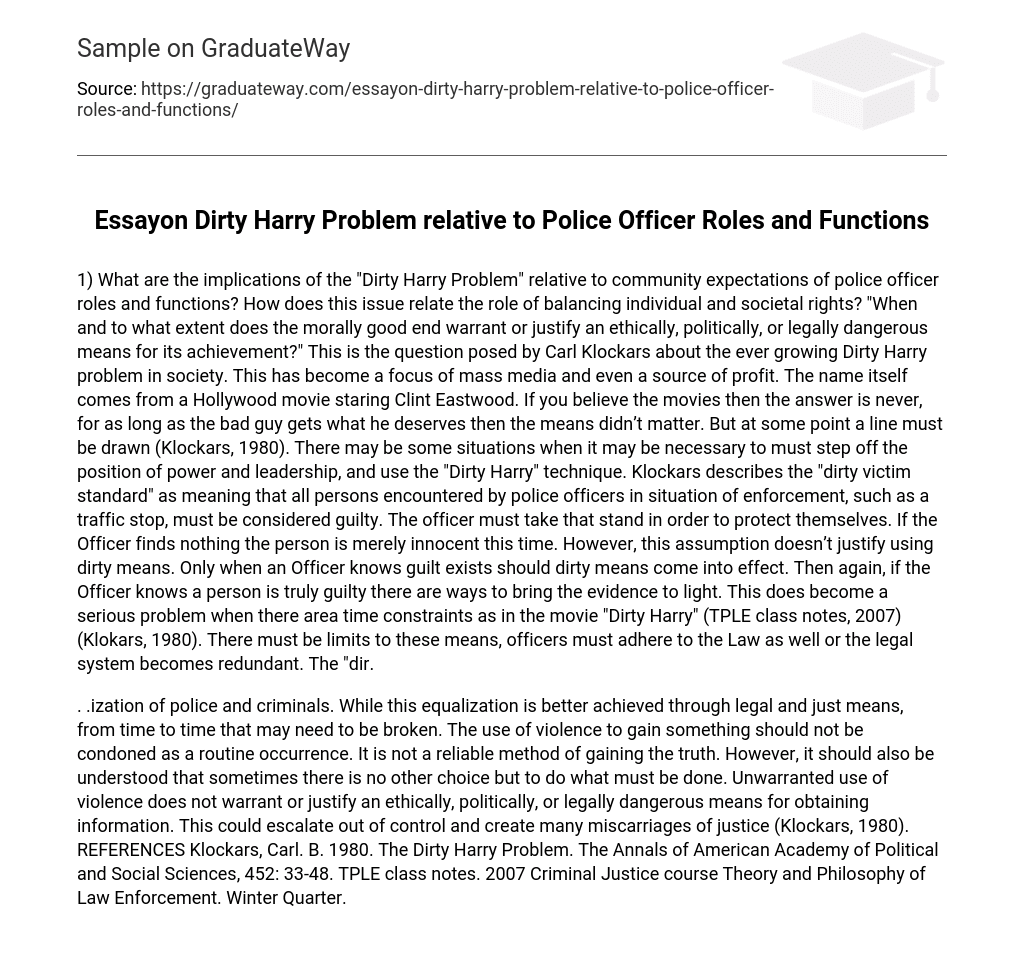How does this issue relate the role of balancing individual and societal rights? “When and to what extent does the morally good end warrant or justify an ethically, politically, or legally dangerous means for its achievement?”
The ever increasing Dirty Harry issue in society, as Carl Klockars points out, has gained significant attention in mass media and has even become a lucrative source. The term takes inspiration from a Hollywood film featuring Clint Eastwood. According to the movies, the answer is that justice prevails regardless of the methods employed, as long as the antagonist is held accountable.
But at some point a line must be drawn (Klockars, 1980). There may be some situations when it may be necessary to step off the position of power and leadership and use the “Dirty Harry” technique. Klockars defines the “dirty victim standard” as the belief that all individuals encountered by police officers in enforcement situations, like a traffic stop, should be presumed guilty. This stance is taken by officers to protect themselves. If the officer finds no evidence, the person is considered innocent at that moment.
However, using dirty means should only be justified if an Officer knows guilt exists. Additionally, if an Officer knows a person is truly guilty, there are ways to present the evidence. Nevertheless, this becomes a significant issue when there are time constraints, such as in the movie “Dirty Harry” (TPLE class notes, 2007) (Klokars, 1980). It is crucial to establish limits on these tactics, and officers must also adhere to the Law to prevent rendering the legal system ineffective.
The equalization of power between police and criminals should ideally be achieved through legal means, although there are times when deviating from this may be necessary. The routine condoning of violence as a means to obtain information is unreliable and should be avoided. However, it is important to acknowledge that there may be situations where there is no alternative but to take necessary action. It is crucial not to resort to unjust or dangerous methods to gain information, as this could lead to a breakdown of justice and numerous injustices (Klockars, 1980).
REFERENCES
- Klockars, Carl. B. 1980. The Dirty Harry Problem. The Annals of American Academy of Political and Social Sciences, 452: 33-48.
- TPLE class notes. 2007 Criminal Justice course Theory and Philosophy of Law Enforcement. Winter Quarter.





